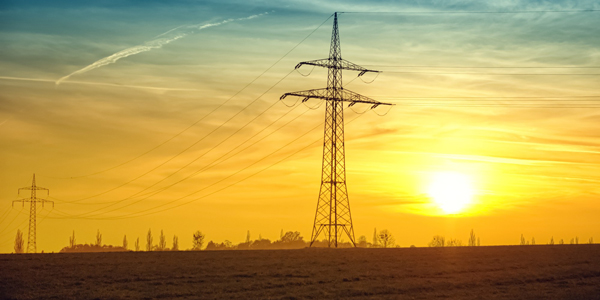FERC last week approved SPP’s second effort to eliminate revenue credits for sponsored transmission upgrades under Tariff Attachment Z2 and replace them with incremental long-term congestion rights (ILTCRs), effective July 1 (ER20-1687).
The commission in January rejected an earlier attempt to eliminate the revenue credits, giving SPP an opportunity to file a revised proposal that “does not impose a cap that limits the term and potential value of ILTCRs.” (See FERC Order Keeps Z2, Aids EDF’s Sponsored Project.)
The RTO responded in April with a filing that proposed to remove the cap on the amount recoverable through the candidate ILTCRs and revert back to current provisions allowing those ILTCRs a term of at least 10 years and up to 20 years.
The June 30 order was a defeat for renewable developers, who contended that SPP’s proposal would violate FERC’s cost allocation policies because upgrade sponsors — generally wind and solar facilities — would no longer receive direct payments from third parties who benefit from an upgrade. They argued SPP could not remove Z2 credits without trying to replace them with another mechanism “that considers whether others benefit from these directly assigned network upgrades.”
The commission disagreed, saying upgrade sponsors receive ILTCRs as a form of compensation for being directly assigned network upgrade costs. Third-party beneficiaries of incremental network upgrades “will continue to indirectly pay for such upgrades through congestion payments,” it wrote.
“To the extent that an upgrade is utilized at its full capacity in the day-ahead energy market and thus generates congestion rent … a load-serving entity whose power consumption contributes to congestion on the upgraded facility will fund ILTCRs associated with the upgraded facility through its congestion payments,” FERC said.
Under Attachment Z2 of SPP’s Tariff, transmission customers that fund network upgrades can be reimbursed through transmission service requests, generator interconnections or upgrades that could not have been honored “but for” the upgrade.
SPP has been trying to replace Z2 credits since 2016, when controversy arose after the grid operator identified eight years of retroactive credits and obligations that had to be resettled after staff failed to apply credits. (See SPP Invoices Lead to Confusion on Z2 Payments.)
In a separate proceeding related to the retroactive Z2 payments, FERC in February denied SPP’s request for a rehearing of a 2019 order that the RTO provide refunds of credit payment obligations (ER16-1341). (See FERC Denies Rehearing in Z2 Remand Order.) SPP and Oklahoma Gas & Electric have appealed the decision to the D.C. Circuit Court of Appeals, where the matter is expected to be set through a briefing process, according to the RTO.
FERC Accepts Generator-replacement Proposal
FERC on June 30 also accepted SPP Tariff revisions that create procedures for expedited replacement of existing generating facilities when the replacement is not a material modification, effective July 1 (ER20-1536).
The commission said SPP’s procedures will avoid duplicative study costs and operational costs that otherwise would occur when the replacement request must proceed through the interconnection study queue process, delaying the addition of more efficient and cost-effective resources. FERC said the proposal will prevent generator owners from losing their existing interconnection service and potentially incurring “significant costs” to obtain replacement service at the same location.
“We find that SPP’s proposal will allow for more efficient use of the transmission system by streamlining the current replacement process,” the commission said.
FERC found SPP’s proposed process complies with Order 2003, which requires public utilities that own or operate transmission to file generator interconnection procedures for facilities with capacity greater than 20 MW. The order provides for pro forma large generator interconnection procedures (LGIP) but allows for variations consistent with or superior to the standard LGIP.
In its April filing, SPP said its proposal will encourage owners of existing facilities to upgrade to newer, more efficient technology.
Multiday Minimum Run Time OK’d
FERC’s Office of Energy Market Regulation on June 30 issued a letter order accepting SPP’s Tariff revisions that allow market-committed resources with a minimum run time extending beyond initial reliability unit commitment or day-ahead commitment periods to be eligible for make-whole payments after their initial commitment period (ER20-1782).
The RTO’s stakeholders approved the change in January. It is intended to minimize potential gaming opportunities identified by the Market Monitoring Unit. (See “Members Pass 12 Revision Requests,” SPP MOPC Briefs: Jan. 14-15, 2020.)
FERC to Examine Roughrider’s Formula Rate
FERC on June 30 also accepted SPP’s Tariff revisions that add a formula rate template and implementation protocols allowing Roughrider Electric Cooperative to recover its annual transmission revenue requirement (ATRR) as a transmission-owning member of the RTO, effective July 1 (ER20-1750).
However, the commission said its preliminary analysis indicates the proposed revisions may be unjust and set them for hearing and settlement judge procedures. Missouri River Energy Services had protested the filing, arguing that it lacked adequate detail about the source of certain construction costs.
Roughrider, embedded in the Integrated System as a Basin Electric Power Cooperative member, joined SPP on April 30 and has been placed in the RTO’s Upper Missouri pricing zone. The North Dakota distribution cooperative serves more than 8,000 members in six counties. It purchases power through Montana’s Upper Missouri Generation & Transmission Cooperative and also sources energy from SPP members Basin Electric Power Cooperative and Western Area Power Administration.
FERC did not suspend and subject Roughrider’s ATRR to refund obligations because the co-op is not within the commission’s jurisdiction under Section 205 of the Federal Power Act. However, it noted that Roughrider voluntary agreed to issue refunds should it change under the hearing and settlement judge process.





